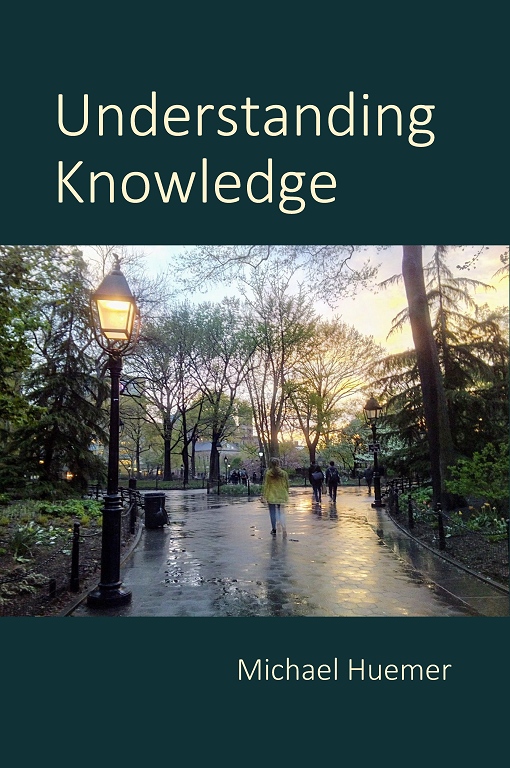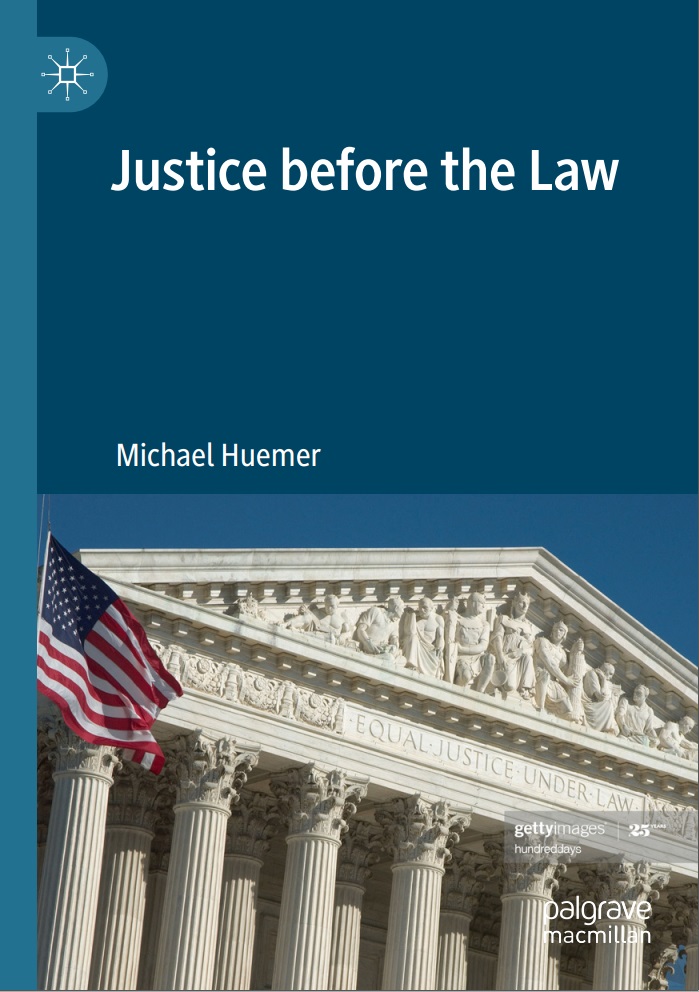Books

Understanding Knowledge
Me, 2022.
Contents | Sample
The world’s best introduction to epistemology, Understanding Knowledge discusses basic philosophical
problems in epistemology, including such questions as: What is knowledge? How can we know about the world
outside our minds? How do we know about things that are unobservable? Are intuitions a legitimate source of
knowledge? What justifies any of our beliefs? The text clearly and succinctly explains the most important
theories and arguments about these things, and it does so a lot less boringly than most books written by
professors.

Knowledge, Reality, and Value
Me, 2021.
Contents | Sample
The world’s best introduction to philosophy, Knowledge, Reality, and Value explains basic philosophical
problems in epistemology, metaphysics, and ethics, such as: How can we know about the world outside our minds?
Is there a God? Do we have free will? Are there objective values? What distinguishes right actions from wrong
actions? The text clearly explains the most important arguments about these things, and it does so a lot less
boringly than most books written by professors.

Justice Before the Law
Palgrave, 2021.
Contents
America’s legal system harbors serious, widespread injustices. Many defendants are sent to prison for nonviolent
offenses, including many victimless crimes. Convicts often serve draconian sentences in crowded prisons rife with
abuse. Almost all defendants are convicted without trial because prosecutors threaten them with drastically
higher sentences if they request a trial. Most Americans are terrified of any kind of legal trouble,
knowing that the system is extremely slow, unreliable, and expensive. This book explores
the largest injustices in the legal system and what can be done about them. Besides proposing institutional reforms,
I argue that prosecutors, judges, lawyers, and jurors should place justice before the law – for
example, by refusing to enforce unjust laws or impose unjust sentences.

Dialogues on Ethical Vegetarianism
Routledge, 2019.
Contents
Worldwide each year, 74 billion animals are slaughtered on factory farms, at the end of a life of suffering.
Is it wrong to buy the products of this industry? A meat-eater and an ethical vegetarian discuss this question in
a series of four dialogues. Issues covered include: how intelligence affects the badness of suffering, whether
consumers are responsible for the practices of the industry, whether morality protects those who cannot understand
morality, whether humans alone possess souls, whether different species have different levels of consciousness,
why extreme animal welfare positions “sound crazy”, and the role of empathy in moral judgment. The two go on to
discuss the vegan life, why people who accept the arguments often fail to change their behavior, and how vegans
should treat non-vegans.

Paradox Lost
Palgrave Macmillan, 2018.
Contents
Paradox Lost covers ten mind-boggling philosophical paradoxes, in which seemingly compelling reasoning leads to absurd or contradictory conclusions. Paradoxes
included: (1) the Liar Paradox, (2) the Sorites Paradox, (3) the Puzzle of the Self-Torturer, (4) Newcomb’s Problem, (5) the Surprise Quiz Paradox,
(6) the Two Envelope Paradox, (7) the Paradoxes of the Principle of Indifference, (8) the Ravens Paradox, (9) the Shooting Room Paradox, and
(10) the Puzzles of Self-Locating Belief.
The book explains each paradox, exposes common mistakes in thinking about the paradox, and walks the reader through a clear, logical solution.

Approaching Infinity
Palgrave Macmillan, 2016.
Contents
From ancient times, infinity has been steeped in paradox. According to one famous argument, nothing can ever move, because to move from one point to another, one must
first travel half the distance, then half the remaining distance, and so on. Another puzzle asks us to imagine that a lamp that starts out off, then is turned on after half
a minute, off after a quarter minute, and so on; at the end of one minute, is it on or off? Most observers think that the first of these infinite series can be completed,
but the second cannot. Why? This book addresses this and many other puzzles about infinity, most of which have no generally accepted solutions. A new theory of the infinite
is advanced, on which an infinite series is uncompletable when it requires something to possess an infinite natural, intensive magnitude. Along the way, the author addresses
the nature of numbers, sets, geometric points, and related matters.

The Problem of Political Authority
Palgrave Macmillan, 2013.
Contents | Sample
A foundational assumption of political philosophy is that some governments possess a moral property known as political authority. Theories of authority are meant to
explain, first, why individuals are ethically obligated to obey the law under normal circumstances, and second, why agents of the state are normally ethically entitled to
coerce individuals to obey. In the first part of the book, I consider several philosophical accounts that have been offered for why some states possess this peculiar moral
status. I argue that none of these accounts succeed, and thus that no person or group genuinely possesses political authority. I go on to consider the psychology of authority,
arguing that a series of non-rational factors explain traditional beliefs and attitudes about authority. Finally, I consider the implications for individual and governmental
behavior of relinquishing the belief in authority. In the second part of the book, I confront a central assumption of most theories of authority: that a central authority
structure is essential to any livable society. Against this assumption, I argue that a livable society could exist with no recognized central authority.

Ethical Intuitionism
Palgrave Macmillan, 2005.
Contents | Sample
This book defends a form of ethical intuitionism, according to which (i) there are objective moral truths; (ii) we know some of these truths through a kind of immediate,
intellectual awareness, or “intuition”; and (iii) our knowledge of moral truths gives us reasons for action independent of our desires. I confront the major objections to
this theory, arguing that contrary to what has often been assumed, the theory does have the resources to explain moral disagreements and to offer a reasonable approach to
resolving some of them. The major alternative theories, including subjectivism, nihilism, and reductionism, are shown to face decisive objections.

Skepticism and the Veil of Perception
Rowman & Littlefield, 2001.
Contents | Sample
Since Descartes, one of the central questions of Western philosophy has been that of how we know that the objects we seem to perceive are real. Philosophical skeptics
claim that we know no such thing. Representationalists claim that we can gain such knowledge only by inference, by showing that the hypothesis of a real world is the best
explanation for the kind of sensations and mental images we experience. Both accept the doctrine of a “veil of perception”: that perception can only give us direct
awareness of images or representations of objects, not the external objects themselves. In contrast, I develop a theory of perceptual awareness in which (a) perception gives
us direct awareness of real objects, not mental representations, and (b) we have non-inferential knowledge of (some of) the properties of these objects. Further, I confront
the four main arguments for philosophical skepticism, showing that they are powerless against this kind of theory of perceptual knowledge.








